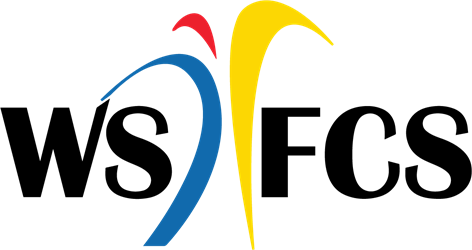 Winston-Salem/Forsyth County Schools will hold plenty of graduations this week, but some of the earliest aren’t for students – they’re for parents and family members who’ve broadened their English skills through the Toyota Family Literacy Program.
Winston-Salem/Forsyth County Schools will hold plenty of graduations this week, but some of the earliest aren’t for students – they’re for parents and family members who’ve broadened their English skills through the Toyota Family Literacy Program.
Sponsored by Toyota, the Family Literacy Program offers free adult ESL classes to parents and family members of students at Easton Elementary School, Forest Park Elementary School, Mineral Springs Elementary School, and Parkland High School. Participants take classes with instructors provided by Forsyth Technical Community College and even get to spend time in their children’s classrooms for some educational activities.
For over 20 years, the program has been enriching entire families within the WS/FCS community. Graduates end their time in the program with a wealth of skill and opportunities that they didn’t have before, not only for their professional prospects, but for navigating everyday life.
 “We can go to a restaurant and order food even if nobody there speaks Spanish, or we can go to a bank and open an account,” said Josselin Euceda Martinez, one of the newest graduates of the program. “It opens up a lot of opportunities for us.”
“We can go to a restaurant and order food even if nobody there speaks Spanish, or we can go to a bank and open an account,” said Josselin Euceda Martinez, one of the newest graduates of the program. “It opens up a lot of opportunities for us.”
Recognizing these adult learners in a proper graduation ceremony is not only an acknowledgement of their hard work and dedication, but also a message to the students in their lives. Education is a lifelong process, and it’s never too late to learn something new. Seeing the power of continuing education in action has been a moving experience for many students.
“I think it’s wonderful,” said Reynolds High School Sophomore Evelyn Lazo, who got to see her cousin Wendy Herrera graduate the program last week. “I can’t wait to see what kind of places knowing English is going to take her.”
 EL Parent Engagement Manager Nareny Martinez says that the program is mission critical for reaching Spanish-speaking households throughout WS/FCS. English classes make a tangible difference in the way participants live their lives, and in the future, organizers hope to expand it to include GED coursework so that these families can unlock even more opportunities.
EL Parent Engagement Manager Nareny Martinez says that the program is mission critical for reaching Spanish-speaking households throughout WS/FCS. English classes make a tangible difference in the way participants live their lives, and in the future, organizers hope to expand it to include GED coursework so that these families can unlock even more opportunities.
Above all, however, the Family Literacy Program is an invitation for parents and families to be more involved in their children’s education. It helps them communicate more with their students’ teachers and administrators and allows them to take a more active role in school culture. The mere existence of the program is a way for the district to voice how important serving multilingual families is.
“It shows them that we see them as a part of our community,” Martinez said. “It shows them that they belong here.”

